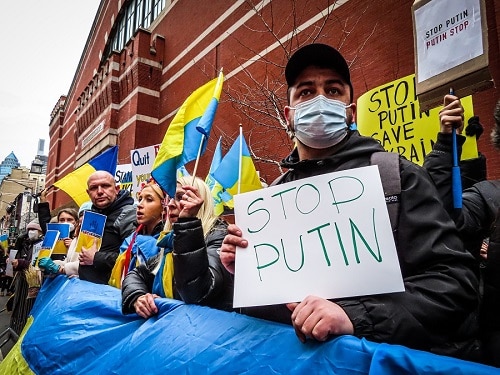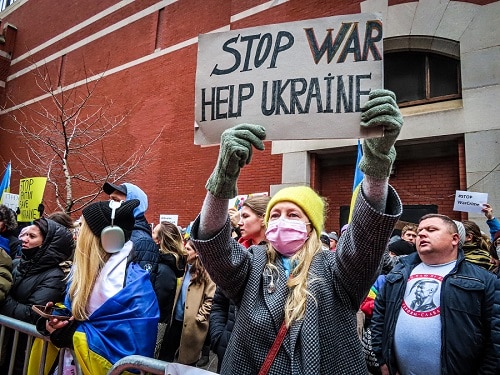Posts Tagged ‘Ukraine’
Tech News : ICANN’T Delete Russian Domains
ICANN, the US-based non-profit organisation responsible for overseeing the Internet’s Domain Name System (DNS) has turned down a request by Ukraine’s Deputy Prime Minister to revoke Russian domain names. The Request In a published response from Göran Marby, President and Chief Executive Officer of the Internet Corporation for Assigned Names and Numbers (ICANN), he outlined what Ukraine’s…
Read MoreTech News : Warning: Scam Aid To Ukraine Emails Circulating
The UK’s national fraud reporting centre, Action Fraud, says that it has received 196 reports of scam emails claiming to be raising funds for victims of the war in Ukraine. Facebook Post In a Meta / Facebook post on 18 March, Action Fraud reported: “We’ve received 196 reports about FAKE emails purporting to raise money…
Read MoreTech News : Deepfakes About War
Deepfake videos of both Russian President Vladimir Putin and Ukrainian President Volodymr Zelensky have appeared online this week, both with quite different messages. What Are Deepfake Videos? Deepfake videos are made using deep learning technology and use manipulated images of target individuals (found online), often celebrities, politicians, and other well-known people to create very convincing…
Read MoreTech News : Germany Warns Against Use of Kaspersky Anti-Virus
Germany’s Federal Office for Information Security (BSI) has warned that Russia-based Kaspersky’s anti-virus software could be used for spying or launching cyber-attacks. Russian Companies Forced To Launch Cyber-Attacks? The warning was aimed at Russian IT businesses who, claims the BSI, could be used via the software to carry out offensive operations, or forced against their…
Read MoreTech News : Microsoft Halts Sales In Russia
In response to the invasion of Ukraine, Microsoft has suspended all new sales of Microsoft products and services in Russia. Other Aspects Of Its Business Too Microsoft has described how it has been “horrified, angered and saddened” by the “unjustified, unprovoked and unlawful invasion by Russia” which has led to its decision to suspend sales to Russia. In addition…
Read MoreFeatured Article : Okay, Ukraine Is Being Attacked. How Worried Should We Be?
In this article, we look at how, in addition to the devastating missiles, rockets, bombs, tanks and other weapons, Ukraine has also been the subject of cyber-warfare and we look at how these and other war-related issues could be cause for concern across Europe. War In Ukraine At the time of writing this article, as…
Read More





